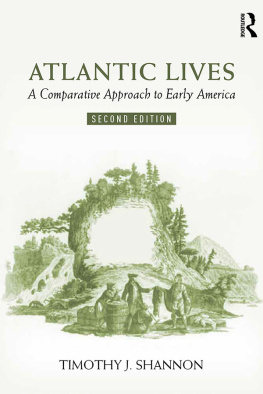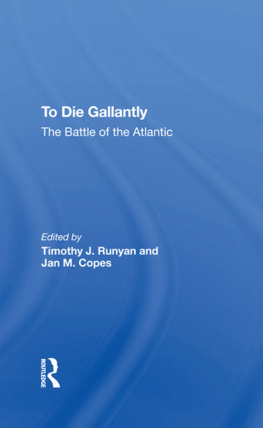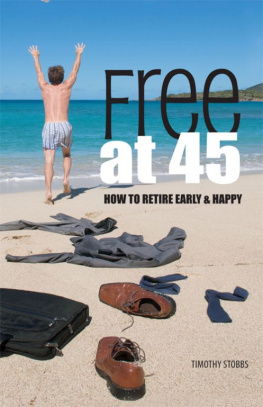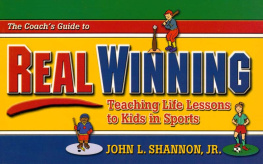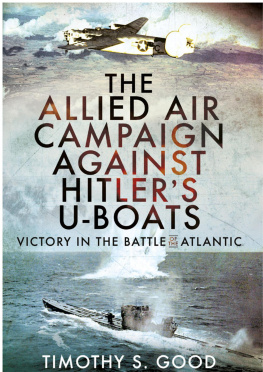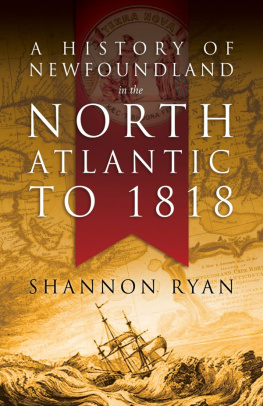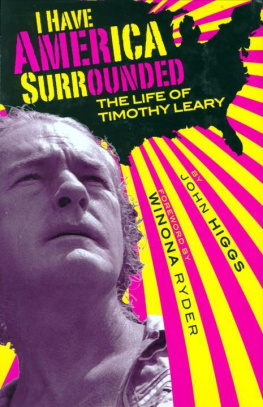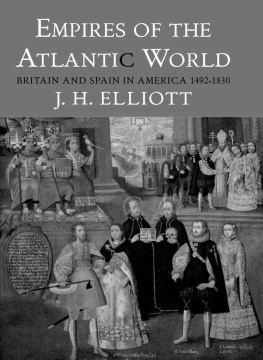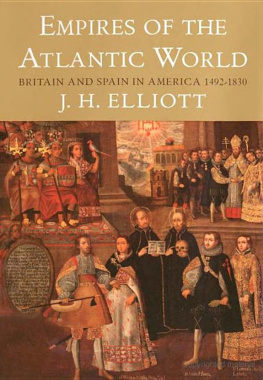Atlantic Lives
Atlantic Lives offers insight into the lived experiences of a range of actors in the early modern Atlantic World. Organized thematically, each chapter features primary source selections from a variety of non-traditional sources, including travel narratives from West Africa, the Caribbean, and Latin America. The fully revised and expanded second edition goes into even greater depth in exploring the diverse roles and experiences of women, Native Americans, and Africans, as well as the critical theme of emerging capitalism and New World slavery. New chapters also address captivity experiences, intercultural religious encounters, and interracial sexuality and marriage. With classroom-focused discussion questions and suggested additional readings accompanying each chapter, Atlantic Lives provides students with a wide-ranging introduction to the many voices and identities that comprised the Atlantic World.
Timothy J. Shannon is Professor of History at Gettysburg College in Gettysburg, Pennsylvania.
Atlantic Lives
A Comparative Approach to Early America
Second Edition
Timothy J. Shannon
Second edition published 2019
by Routledge
52 Vanderbilt Avenue, New York, NY 10017
and by Routledge
2 Park Square, Milton Park, Abingdon, Oxon, OX14 4RN
Routledge is an imprint of the Taylor & Francis Group, an informa business
2019 Taylor & Francis
The right of Timothy J. Shannon to be identified as author of this work has been asserted by him in accordance with sections 77 and 78 of the Copyright, Designs and Patents Act 1988.
All rights reserved. No part of this book may be reprinted or reproduced or utilized in any form or by any electronic, mechanical, or other means, now known or hereafter invented, including photocopying and recording, or in any information storage or retrieval system, without permission in writing from the publishers.
Trademark notice: Product or corporate names may be trademarks or registered trademarks, and are used only for identification and explanation without intent to infringe.
First edition published by Pearson 2003
Library of Congress Cataloging-in-Publication Data
A catalog record for this book has been requested
ISBN: 978-1-138-57772-5 (hbk)
ISBN: 978-1-138-57773-2 (pbk)
ISBN: 978-1-351-26624-6 (ebk)
Typeset in Goudy
by Wearset Ltd, Boldon, Tyne and Wear
For my students
Contents
This book has grown out of a course I started teaching in 1997 at Gettysburg College. At that time, the History Department had decided to revamp its introductory courses. In particular, the World History survey was at once too familiar and too daunting to students and instructors. It required covering an enormous amount of material at a breakneck speed, without providing the depth necessary to introduce students to the study of history at the college level. Those of us who had taught the World History course decided we would slice up the pie, each of us developing a new course that would deal with history on an intercontinental scale, but in a time-frame small enough to allow in-depth concentration on specific themes and ideas. As a historian of Early America, I decided to focus on the interaction between Europe, Africa, and the Americas, from the Age of Columbus through the Age of Revolutions. It was an idea that would have appealed to Goldilocks: if World History was too big for what I hoped to accomplish and the standard US History survey too small, then the Atlantic World seemed just right.
As soon as I began teaching the course, I became aware that the subject lacked a good, comprehensive textbook. There were many books on particular aspects of the coursethe Atlantic Slave Trade, the Columbian Exchange, Atlantic Migrationsthat my students and I found useful and thought-provoking, but I could find no single, overarching narrative that could guide the students through the semester. As I thought about how I would design such a text, it also occurred to me that I would like to have my students reading more of the primary sources of Atlantic history, so that they might meet and listen to many of the individuals who lived this history first hand. As I taught the course in ensuing years, I collected references for such primary sources: slave and captivity narratives, travel journals and diaries, political tracts and promotional pamphlets, letters, and autobiographies. Ultimately, I decided to combine my ideas for a narrative text and primary source collection into one project, the result of which you are reading now.
This book presents a history of the Atlantic World from about 1450 to 1830. After the Introduction, the chapters follow a rough chronological order, but are conceived and organized thematically. The objective of this design is to provide both the skeleton of a narrative overview of the Atlantic World and an introduction to the major topics in the field. Each chapter presents reading selections from two or three primary sources related to its topic. I have chosen to devote the bulk of the books content to these sources because they provide comparative, first-person perspectives on the issues at hand. Whenever possible, I have incorporated the narratives of people who traveled between the Americas, Africa, and Europe. Their voices give immediacy to the subject matter in a way that a textbook narrative cannot. Too often, the teaching of history loses its human content as students and instructors focus on -isms (feudalism, mercantilism, capitalism, industrialism, and so on) instead of individuals. This book has its share of -isms, but I hope that readers will find in these selections the voices and personalities of those individuals whose lives shaped and were shaped by the history of the Atlantic World.
It has been fifteen years since the first edition of Atlantic Lives, and the scholarship on Atlantic World history has expanded in depth and breadth. Several textbooks covering the field have appeared during that time, but this book remains one of the very few primary sources readers available on the topic. New source selections make up approximately one-third of this edition, and nearly every chapter features at least one. The number of chapters has also increased in order to provide more comprehensive coverage of such topics as captivity, religion, and sexuality. These new source selections expand the ethnic, racial, and gender diversity of voices represented in this volume, reflecting more fully the human mosaic that knits the Atlantic World together. It is my sincere hope that instructors and students will find in these pages an interesting and useful introduction to Atlantic World history by reading the words of the people who made it.
I would like to thank Eve Setch and Eve Mayer at Routledge for their support of this project, and Ted Meyer for his help in completing the revision process. I would also like to thank Rebekah Grimes for her work in transcribing sources and the Reference and Interlibrary Loan departments at Musselman Library at Gettysburg College for their help in accessing materials. I remain indebted to my students, whose reading, questioning, and interpreting of this material challenge me to see it anew.
A faculty Development and Research Grant from Gettysburg College helped support the research for this project. I would like to thank Lauren Rocco, Amber Moulton, and Jen Chesney for their work as research assistants. Also, my thanks to Susan Roach and Linda Isenberger for their help in locating materials, and to Barbara Sommer for sharing her expertise in Latin American history and to Charlie Zabrowski for his help in the Latin translations. My students have helped me identify many of the reading selections included here and to refine my own ideas about the content and meaning of Atlantic history. The kind folks at the Ragged Edge Coffee House (the real reason to visit Gettysburg) supplied my caffeine and a nice place to work, when I could get away from the office. This book has been much improved by the thoughtful commentary of the following reviewers: John Thornton, Millersville University; Edward H. Tebbenhoff, Luther College; Robert A. Becker, Louisiana State University; Melissa Walker, Converse College; Brenda Thompson Schoolfield, Bob Jones University; David Armitage, Columbia University; Anna Bates, Aquinas College; Armand S. La Potin, State University of New York College at Oneonta; Jessica Kross, University of South Carolina; B. R. Burg, Arizona State University; Hal M. Friedman, Henry Ford Community College; H. Warren Gardner, University of Texas of the Permian Basin; Peter Moore, University of Georgia; Constance M. McGovern, Frostburg State University; James H. Williams, Middle Tennessee State University; Michael P. Gabriel, Kutztown University; and Wade Shaffer, West Texas A&M University who reviewed it for Longman; and I also appreciate the advice and assistance of Ashley Dodge and Jacob Drill during the editing and production stages.


